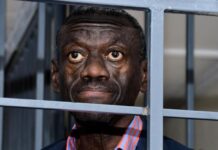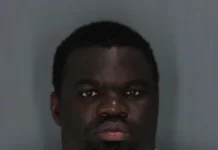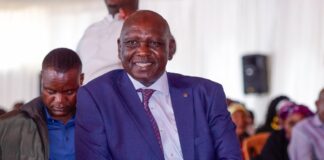Burundians went to the polls on Thursday to elect a new parliament, in an election widely expected to consolidate the grip of the ruling CNDD–FDD party, amid allegations of opposition suppression and mounting socio-economic challenges.
President Évariste Ndayishimiye, whose CNDD–FDD party has dominated Burundian politics since 2005, cast his vote in his hometown of Musama, Gitega Province, alongside his wife and children. Speaking to local media, he praised what he called strong voter turnout, saying it reflected “a patriotic spirit” and a deepening of democracy in Burundi.
However, critics argue that democracy is under siege. The main opposition party, the National Freedom Council (CNL), was barred from participating after being suspended by the interior ministry in 2023 over alleged organizational irregularities. Its former leader, Agathon Rwasa, was ousted while abroad—a move he claims was orchestrated by the government. Subsequent legal changes effectively blocked him and his allies from running under other platforms or as independents.
CNL members alleged irregularities on social media platform X, citing forced voting, voter intimidation, and the detention or exclusion of their observers. With most credible challengers sidelined, analysts suggest the election was heavily tilted in favor of the ruling party.
“In the absence of Agathon Rwasa’s CNL, the CNDD–FDD is sure to win,” said a local political analyst, who requested anonymity, warning that the vote was taking place amid “galloping inflation over 40 percent, widespread shortages, and growing discontent.”
Patrick Nkurunziza, head of the Burundi for All coalition, also decried threats and harassment against opposition members by the ruling party’s youth wing, the Imbonerakure. He said a chronic fuel shortage, now in its third year, further hampered campaign efforts.
Despite these obstacles, many Burundians turned out to vote. “We expect the party we voted for to address poverty and the high cost of living,” said Denise, a woman in her 30s. Others, like Prosper, a 64-year-old retired engineer, expressed skepticism: “The country will continue sinking into crisis,” he said, adding that some officials monitored whether people had voted.
Vote counting began shortly after polls closed around 3 p.m., with heavily pro-government oversight. Provisional results are expected early next week, with final results due by June 20.
Though President Ndayishimiye was once seen as a reformer after taking office following the 2020 death of his predecessor Pierre Nkurunziza, Burundi remains one of the world’s poorest nations, and its human rights record continues to draw criticism.
Under the country’s peace deal of 2000, parliamentary seats are constitutionally divided between Hutu and Tutsi ethnic groups in a 60-40 ratio. Yet the dominance of the CNDD–FDD and the weakening of genuine opposition have raised doubts about the democratic integrity of Thursday’s vote.
Written By Rodney Mbua



















